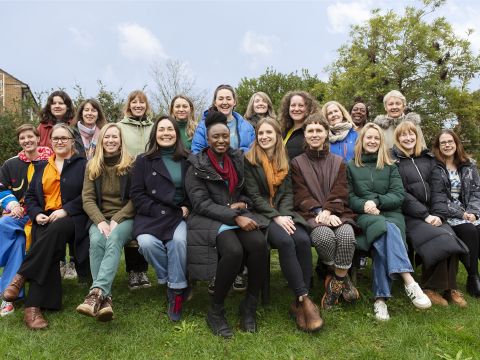Inspirational Women Across History in Ecology
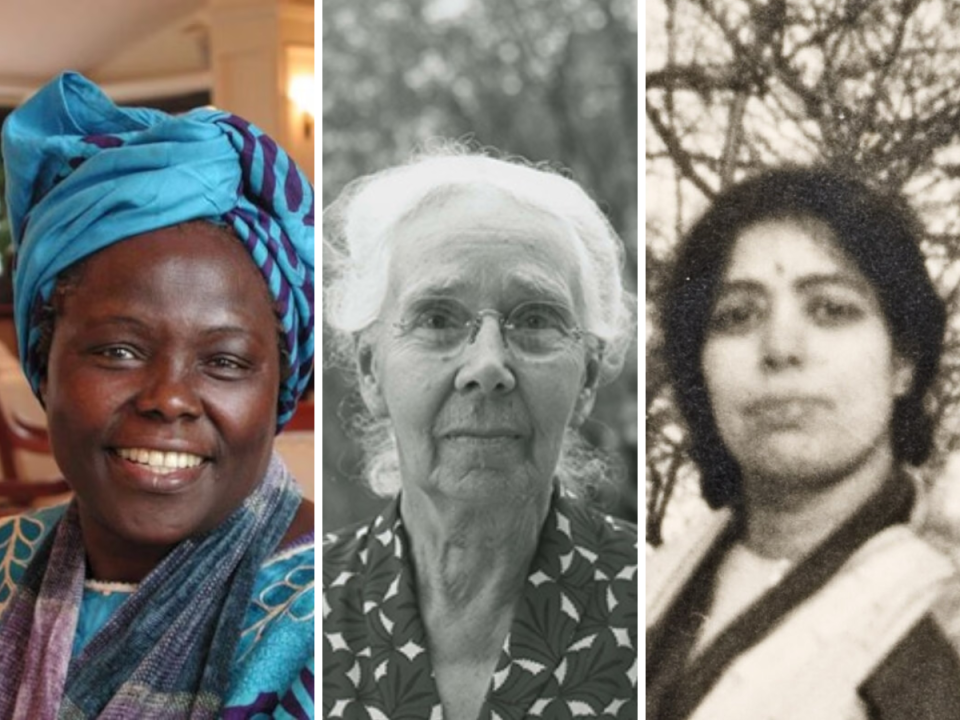
For Women's History Month, volunteer writer, Helena Keys, highlights three amazing women who've utilised their talent, intelligence, and determination to further develop our knowledge within the environmental sciences and empower other women along the way.
March is Women's History Month
Finally it’s March! Daffodils, cherry blossom, and longer sun-filled hours are here at last!
Besides the welcoming presence of flowers and sunlight, March also beckons a time for celebration and remembrance; a time to honour the many marvellous women around the world whose efforts, both past and present, have positively changed our relationship with the natural world and developed our understanding of conservation and sustainability.
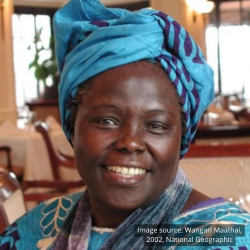
Wangari Maathai: The Woman of Trees
(1940 - 2011)
Winner of the 2004 Nobel Peace Prize Laurette and author to four books, Maathai was the first woman in East and Central Africa to earn a doctorate degree.
Nicknamed ‘The Woman of Trees’, she founded The Green Belt Movement in 1977 which continues to “empower communities, especially women, to conserve the environment and improve livelihood.” It has been reported that approximately 4.2 million trees throughout Kenya have been planted thanks to their efforts, and in 2020 alone, 20 hectares of degraded forest land have been rehabilitated.
Alongside her work, Maathai has given speeches at numerous events including addressing the United Nations (UN) and being a spokesperson on behalf of women at the General Assembly within the Earth Summit.
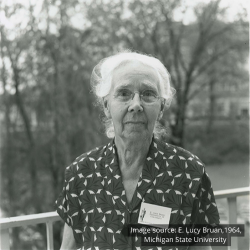
E. Lucy Braun: Influential Conservationist
(1889 - 1971)
E. Lucy Braun was born in Cincinnati, US and earned her Ph.D. in botany in 1914, six years before women were given the right to vote.
As one of the first scientists to focus her research within plant ecology, Braun released her ground-breaking book Deciduous Forests in Northern America detailing the history and distribution of deciduous trees within East Northern American woodlands. Her determination for woodland conservation resulted in the preservation of a 22-acre xeric limestone prairie which, although may seem fairly insignificant, led directly to the creation of The Nature Conservation, one of the biggest nature conservation groups in the world.
Due to her outstanding contributions within the field of ecology, Braun became the first elected president of the Ecological Society of America, as well as the first woman inducted into the Ohio Conservation Hall of Fame.
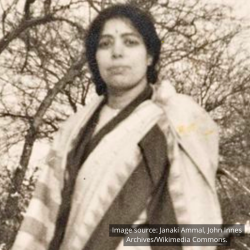
Janaki Ammal: A Woman of Firsts
(1897 - 1984)
Born in Kerala, India, Janaki Ammal was the first Indian woman to be awarded a doctorate in botanical science.
As part of her research, Ammal studied the crossbreeding of sugarcane in order to produce higher-yielding plants, in fact, a hybrid she created went on receive commercial success, for which she received no credit.
In 1940, Ammal moved to London and became the first woman to work at the Royal Horticultural Society Garden. However, in 1951, she was asked by Indian Prime Minister, Jawaharlal Nehru, to return to India and assist in reconstructing the Botanical Survey of India (BSI).
However, after her “male colleagues refused to take commands from a woman" (as reported by the BBC) Ammal was dismissed. Instead, she travelled India in search of new plants.
Even after her death, Ammal’s work lives on, and in recognition of her research the flower Magnolia Kobus ‘Janaki Ammal’ was named after her.
Women of the Present
While there is no denying that women have made a vital impact on past ecological discoveries, who are the women currently making waves in the world of ecology and environmental sciences? Well, other than discovering how trees communicate using fungal networks, courtesy of Suzanne Simard, or founding new organisation such as the Old-Growth Forest Network, courtesy of Joan Maloof, there are numerous modern women who are making a significant impact in the ecological sciences.
Not to be missed, Vandana Shiva, founder of Navdanya, an organisation which focuses on biodiversity conservation and farmers rights, received the Earth Day International Award, and was hailed as an “environmental hero” by Time magazine in 2003.
Diana Beresford-Kroeger, author of To Speak for the Trees, encourages and educates ordinary people on how to regrow forests by focusing on the importance of native plants.
There are so many women that have discovered and contributed towards our current understanding of sustainability, climate change and reforestation. And, without a doubt, there will be many more to come.
So, take a moment this Women’s History Month to remember and celebrate the women of the past and present who have contributed toward developing a healthier, environmentally-friendly future. And, you never know, maybe a few Magnolia Kobus may bloom in your garden this year.
The Women Behind The Trees
For International Women's Day on March 8th, we celebrated the women behind our urban trees. From our volunteers getting stuck in at planting days, to our urban forest team getting our trees in the ground, to our senior leadership team leading the way forward for our charity.
Read their storiesDonate to Trees for Cities and together we can help cities grow into greener, cleaner and healthier places for people to live and work worldwide.
Donate